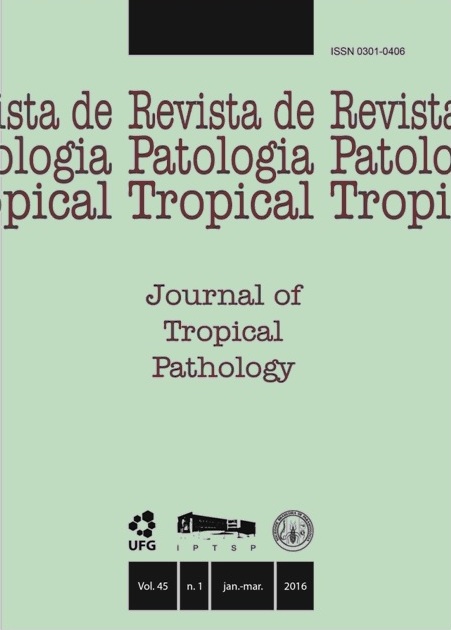PRIMEIRO REGISTRO DE ESQUISTOSSOMOSE DA PRÓSTATA EM PERNAMBUCO, BRASIL: A EXPRESSÃO DA CRONICIDADE DE UMA ENDEMIA
Palavras-chave:
Esquistossomose ectópica, câncer de próstata, Schistosoma mansoni.Resumo
A esquistossomose acomete, há séculos, a população rural de Pernambuco. Manifestações hepatoesplênicas e neurológicas desta parasitose têm sido frequentemente descritas. No entanto, a esquistossomose da próstata, causada pelo Schistosoma mansoni, nunca havia sido reportada em Pernambuco, o que demonstra a necessidade de registrar este caso. Apresentação do caso: Um paciente de 51 anos, após realizar uma prostectomia parcial por suspeita de neoplasia, foi diagnosticado com esquistossomose da próstata. Após o procedimento cirúrgico, foram coletadas amostras de fezes para a realização de testes parasitológicos que se revelaram positivos para S. mansoni, confirmando que o paciente ainda estava infectado. Exames laboratoriais e clínicos mostraram alterações na função hepática e confirmaram danos hepatointestinais. O acompanhamento ambulatorial do paciente demonstrou que os níveis de antígeno prostático específico permaneceram elevados e, um ano após a primeira intervenção cirúrgica, um exame anatomopatológico mostrou a permanência de lesões fibromatosas esquistossomóticas. Vale ressaltar que, após três tratamentos com praziquantel (abril e julho/2014, fevereiro/2015), os exames de fezes apresentaram-se negativos para S. mansoni. Conclui-se que este diagnóstico acidental de esquistossomose da próstata levanta dúvidas sobre a capacidade dos serviços de saúde para identificar e tratar as formas ectópicas da esquistossomose. A manutenção dos elevados níveis de PSA, mesmo após tratamento cirúrgico e farmacológico, sugerem que os danos causados por S. mansoni aos tecidos são irreversíveis. Portanto, os serviços de saúde devem estar preparados para investigar e diagnosticar os casos, visando à prevenção de sequelas crônicas e ao tratamento precoce.Downloads
Downloads
Publicado
Como Citar
Edição
Seção
Licença
The manuscript submission must be accompanied by a letter signed by all authors stating their full name and email address, confirming that the manuscript or part of it has not been published or is under consideration for publication elsewhere, and agreeing to transfer copyright in all media and formats for Journal of Tropical Pathology.

